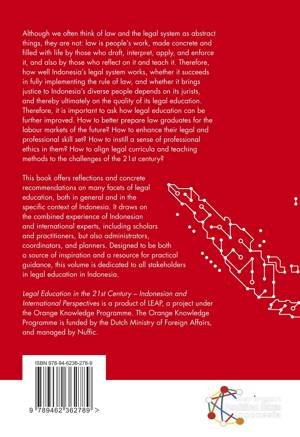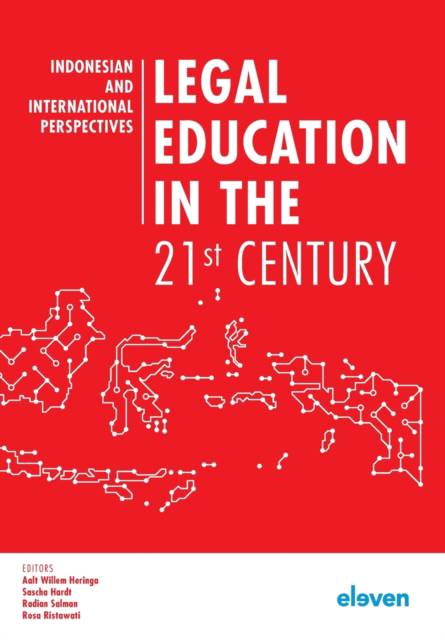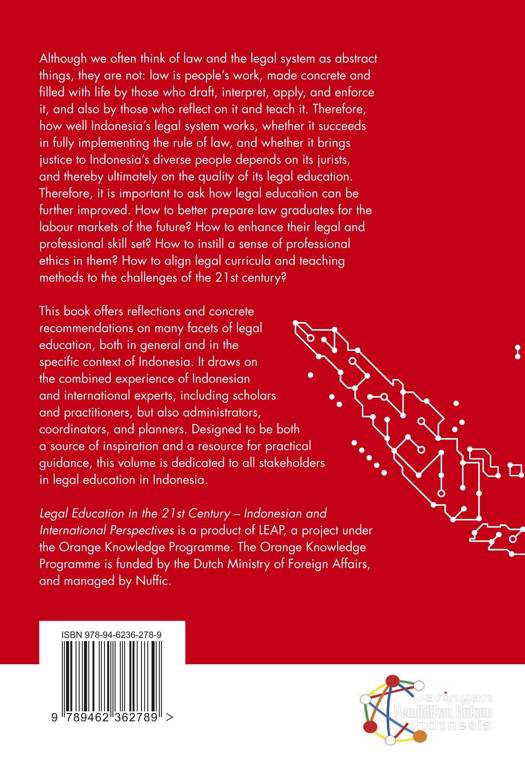
- Retrait gratuit dans votre magasin Club
- 7.000.000 titres dans notre catalogue
- Payer en toute sécurité
- Toujours un magasin près de chez vous
- Retrait gratuit dans votre magasin Club
- 7.000.0000 titres dans notre catalogue
- Payer en toute sécurité
- Toujours un magasin près de chez vous


Legal Education in the 21st Century
Indonesian and International Perspectives
Heringa Aalt WillemDescription
Although we often think of law and the legal system as abstract things, they are not: law is people's work, made concrete and filled with life by those who draft, interpret, apply, and enforce it, and also by those who reflect on it and teach it. Therefore, how well Indonesia's legal system works, whether it succeeds in fully implementing the rule of law, and whether it brings justice to Indonesia's diverse people depends on its jurists, and thereby ultimately on the quality of its legal education. Therefore, it is important to ask how legal education can be further improved. How to better prepare law graduates for the labour markets of the future? How to enhance their legal and professional skill set? How to instill a sense of professional ethics in them? How to align legal curricula and teaching methods to the challenges of the 21st century?
This book offers reflections and concrete recommendations on many facets of legal education, both in general and in the specific context of Indonesia. It draws on the combined experience of Indonesian and international experts, including scholars and practitioners, but also administrators, coordinators, and planners. Designed to be both a source of inspiration and a resource for practical guidance, this volume is dedicated to all stakeholders in legal education in Indonesia.
Legal Education in the 21st Century - Indonesian and International Perspectives is a product of LEAP, a project under the Orange Knowledge Programme. The Orange Knowledge Programme is funded by the Dutch Ministry of Foreign Affairs, and managed by Nuffic.
Spécifications
Parties prenantes
- Auteur(s) :
- Editeur:
Contenu
- Nombre de pages :
- 284
- Langue:
- Anglais
Caractéristiques
- EAN:
- 9789462362789
- Date de parution :
- 16-05-22
- Format:
- Livre broché
- Format numérique:
- Trade paperback (VS)
- Dimensions :
- 165 mm x 240 mm
- Poids :
- 457 g

Les avis
Nous publions uniquement les avis qui respectent les conditions requises. Consultez nos conditions pour les avis.







